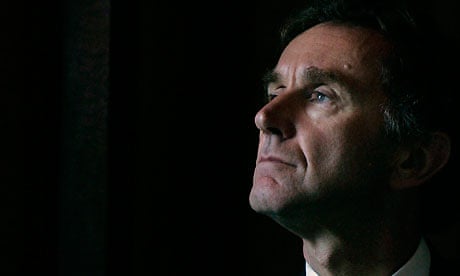An alternative view of the great Libor scandal says it's a storm in a teacup and that everybody knew, or ought to have known, that banks will fiddle the rules when the game is refereed by their own ineffectual trade body.
This line is nonsense, of course, since we're talking about ugly deceit at the heart of financial system. Even so, the revelations about HSBC almost put Barclays in the shade.
Being accused by a US Senate committee of operating a money-laundering conduit for "drug kingpins and rogue nations" is as bad as it gets. What happened to the HSBC of legend, the dull bank led by upright conservative types who ensured they employed only similarly good chaps?
It seems that, in the period 2004-2010, HSBC's famous federation structure actually meant a management free-for-all. If you were the boss of, say, HSBC's unit in Mexico you were a mini-emperor, answerable to almost nobody. You were even in charge of your own compliance department.
The man at head office with the title "head of group compliance" was not allowed to barge into your office to ask what checks you had conducted to discover the true source of the very large dollar deposits coming into the bank.
The numbers are extraordinary. According to the Senate committee, HSBC accepted more than $15bn (£9.6bn) in bulk cash transactions from subsidiaries in Mexico, Russia and other countries at high risk of money laundering between mid-2006 and mid-2009 but failed to conduct proper checks.
To his credit, David Bagley, the head of group compliance in question, offered his resignation to the committee on Monday. He had been in his post since 2002 so one can understand why.
But it also appears that HSBC didn't give Bagley the powers to live up to his job title, reducing his status to one of adviser. "We have sometimes failed to meet the standards that regulators and customers expect," admits HSBC. You bet – a hefty fine, rumoured to be $1bn, is on the way.
If HSBC's boardroom had not been in constant turnover in the past few years, heads would have to roll. As it is, chief executive Stuart Gulliver, in the post since December 2010, can paint himself as a zealous reformer. A list of his recent disposals tells a tale not just of a man seeking to simplify HSBC and so make it easier to manage, but also to clean up the bank's act. Disposals have included units in Colombia, Peru, Uruguay, Paraguay, Costa Rica, El Salvador and Honduras.
Everybody happy then? Should we consign the affair to history and move on? Well, no. HSBC's top executives of the 2004-2010 era are gone but not forgotten. It would be useful to hear from, say, Lord Green, chief executive from 2003 to 2006 and then executive chairman to 2010, about how money-laundering controls at HSBC could have become so lax on his watch. He is currently a trade minister and is also an adviser to George Osborne on banking, so is ideally placed to preach to UK plc about how good intentions are not enough.










Comments (…)
Sign in or create your Guardian account to join the discussion